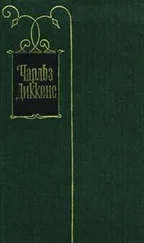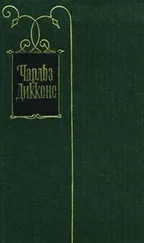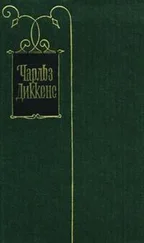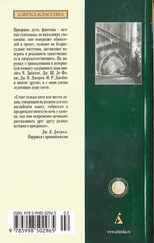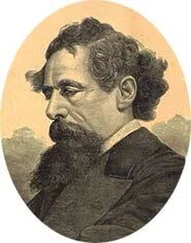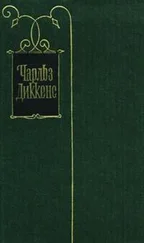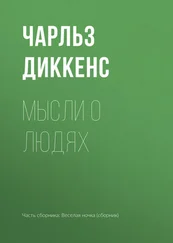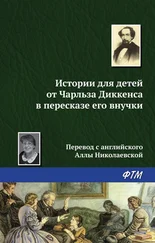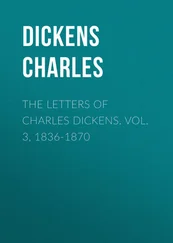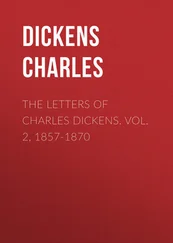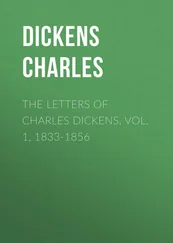Чарльз Диккенс - A House to Let
Здесь есть возможность читать онлайн «Чарльз Диккенс - A House to Let» весь текст электронной книги совершенно бесплатно (целиком полную версию без сокращений). В некоторых случаях можно слушать аудио, скачать через торрент в формате fb2 и присутствует краткое содержание. Год выпуска: 2000, Жанр: Классическая проза, на английском языке. Описание произведения, (предисловие) а так же отзывы посетителей доступны на портале библиотеки ЛибКат.
- Название:A House to Let
- Автор:
- Жанр:
- Год:2000
- ISBN:нет данных
- Рейтинг книги:3 / 5. Голосов: 1
-
Избранное:Добавить в избранное
- Отзывы:
-
Ваша оценка:
- 60
- 1
- 2
- 3
- 4
- 5
A House to Let: краткое содержание, описание и аннотация
Предлагаем к чтению аннотацию, описание, краткое содержание или предисловие (зависит от того, что написал сам автор книги «A House to Let»). Если вы не нашли необходимую информацию о книге — напишите в комментариях, мы постараемся отыскать её.
A House to Let — читать онлайн бесплатно полную книгу (весь текст) целиком
Ниже представлен текст книги, разбитый по страницам. Система сохранения места последней прочитанной страницы, позволяет с удобством читать онлайн бесплатно книгу «A House to Let», без необходимости каждый раз заново искать на чём Вы остановились. Поставьте закладку, и сможете в любой момент перейти на страницу, на которой закончили чтение.
Интервал:
Закладка:
III.
At every hearth she pauses,
Touches each well-known chair;
Gazes from every window,
Lingers on every stair.
What have these months brought Bertha
Now one more year is past?
This Christmas Eve shall tell us,
The third one and the last.
IV.
The wilful, wayward Dora,
In those first weeks of grief,
Could seek and find in Bertha
Strength, soothing, and relief.
And Bertha—last sad comfort
True woman-heart can take—
Had something still to suffer
And do for Herbert’s sake.
V.
Spring, with her western breezes,
From Indian islands bore
To Bertha news that Leonard
Would seek his home once more.
What was it—joy, or sorrow?
What were they—hopes, or fears?
That flush’d her cheeks with crimson,
And fill’d her eyes with tears?
VI.
He came. And who so kindly
Could ask and hear her tell
Herbert’s last hours; for Leonard
Had known and loved him well.
Daily he came; and Bertha,
Poor wear heart, at length,
Weigh’d down by other’s weakness,
Could rest upon his strength.
VII.
Yet not the voice of Leonard
Could her true care beguile,
That turn’d to watch, rejoicing,
Dora’s reviving smile.
So, from that little household
The worst gloom pass’d away,
The one bright hour of evening
Lit up the livelong day.
VIII.
Days passed. The golden summer
In sudden heat bore down
Its blue, bright, glowing sweetness
Upon the scorching town.
And sights and sounds of country
Came in the warm soft tune
Sung by the honey’d breezes
Borne on the wings of June.
IX.
One twilight hour, but earlier
Than usual, Bertha thought
She knew the fresh sweet fragrance
Of flowers that Leonard brought;
Through open’d doors and windows
It stole up through the gloom,
And with appealing sweetness
Drew Bertha from her room.
X.
Yes, he was there; and pausing
Just near the open’d door,
To check her heart’s quick beating,
She heard—and paused still more—
His low voice Dora’s answers—
His pleading—Yes, she knew
The tone—the words—the accents:
She once had heard them too.
XI.
“Would Bertha blame her?” Leonard’s
Low, tender answer came:
“Bertha was far too noble
To think or dream of blame.”
“And was he sure he loved her?”
“Yes, with the one love given
Once in a lifetime only,
With one soul and one heaven!”
XII.
Then came a plaintive murmur,—
“Dora had once been told
That he and Bertha—” “Dearest,
Bertha is far too cold
To love; and I, my Dora,
If once I fancied so,
It was a brief delusion,
And over,—long ago.”
XIII.
Between the Past and Present,
On that bleak moment’s height,
She stood. As some lost traveller
By a quick flash of light
Seeing a gulf before him,
With dizzy, sick despair,
Reels to clutch backward, but to find
A deeper chasm there.
XIV.
The twilight grew still darker,
The fragrant flowers more sweet,
The stars shone out in heaven,
The lamps gleam’d down the street;
And hours pass’d in dreaming
Over their new-found fate,
Ere they could think of wondering
Why Bertha was so late.
XV.
She came, and calmly listen’d;
In vain they strove to trace
If Herbert’s memory shadow’d
In grief upon her face.
No blame, no wonder show’d there,
No feeling could be told;
Her voice was not less steady,
Her manner not more cold.
XVI.
They could not hear the anguish
That broke in words of pain
Through that calm summer midnight,—
“My Herbert—mine again!”
Yes, they have once been parted,
But this day shall restore
The long lost one: she claims him:
“My Herbert—mine once more!”
XVII.
Now Christmas Eve returning,
Saw Bertha stand beside
The altar, greeting Dora,
Again a smiling bride;
And now the gloomy evening
Sees Bertha pale and worn,
Leaving the house for ever,
To wander out forlorn.
XVIII.
Forlorn—nay, not so. Anguish
Shall do its work at length;
Her soul, pass’d through the fire,
Shall gain still purer strength.
Somewhere there waits for Bertha
An earnest noble part;
And, meanwhile, God is with her,—
God, and her own true heart!
* * * * *
I could warmly and sincerely praise the little poem, when Jarber had done reading it; but I could not say that it tended in any degree towards clearing up the mystery of the empty House.
Whether it was the absence of the irritating influence of Trottle, or whether it was simply fatigue, I cannot say, but Jarber did not strike me, that evening, as being in his usual spirits. And though he declared that he was not in the least daunted by his want of success thus far, and that he was resolutely determined to make more discoveries, he spoke in a languid absent manner, and shortly afterwards took his leave at rather an early hour.
When Trottle came back, and when I indignantly taxed him with Philandering, he not only denied the imputation, but asserted that he had been employed on my service, and, in consideration of that, boldly asked for leave of absence for two days, and for a morning to himself afterwards, to complete the business, in which he solemnly declared that I was interested. In remembrance of his long and faithful service to me, I did violence to myself, and granted his request. And he, on his side, engaged to explain himself to my satisfaction, in a week’s time, on Monday evening the twentieth.
A day or two before, I sent to Jarber’s lodgings to ask him to drop in to tea. His landlady sent back an apology for him that made my hair stand on end. His feet were in hot water; his head was in a flannel petticoat; a green shade was over his eyes; the rheumatism was in his legs; and a mustard-poultice was on his chest. He was also a little feverish, and rather distracted in his mind about Manchester Marriages, a Dwarf, and Three Evenings, or Evening Parties—his landlady was not sure which—in an empty House, with the Water Rate unpaid.
Under these distressing circumstances, I was necessarily left alone with Trottle. His promised explanation began, like Jarber’s discoveries, with the reading of a written paper. The only difference was that Trottle introduced his manuscript under the name of a Report.
TROTTLE’S REPORT
The curious events related in these pages would, many of them, most likely never have happened, if a person named Trottle had not presumed, contrary to his usual custom, to think for himself.
The subject on which the person in question had ventured, for the first time in his life, to form an opinion purely and entirely his own, was one which had already excited the interest of his respected mistress in a very extraordinary degree. Or, to put it in plainer terms still, the subject was no other than the mystery of the empty House.
Читать дальшеИнтервал:
Закладка:
Похожие книги на «A House to Let»
Представляем Вашему вниманию похожие книги на «A House to Let» списком для выбора. Мы отобрали схожую по названию и смыслу литературу в надежде предоставить читателям больше вариантов отыскать новые, интересные, ещё непрочитанные произведения.
Обсуждение, отзывы о книге «A House to Let» и просто собственные мнения читателей. Оставьте ваши комментарии, напишите, что Вы думаете о произведении, его смысле или главных героях. Укажите что конкретно понравилось, а что нет, и почему Вы так считаете.

